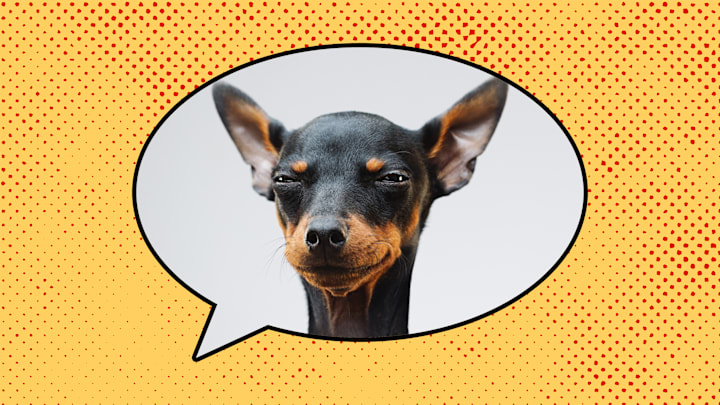You needn't have been on the receiving end of a double (or triple) dog dare to understand its implications for any self-respecting 20th-century schoolchild. All it really takes is one viewing of 1983’s A Christmas Story.
In the film, probably set in 1939, Ralphie watches in horror as his friend Flick valiantly resists a double dare and then a double dog dare before finally caving to the pressure of the dreaded triple dog dare. (The dare itself is for Flick to lick a frozen flagpole, with disastrous but not altogether surprising consequences for his tongue.)
“The exact exchange and nuance of phrase in this ritual is very important,” an adult Ralphie narrates over the action.
It’s not hard to guess why double got added to dare in this age-old schoolyard custom. It automatically heightens the situation—and the peer pressure—without actually altering the stakes themselves. But what do dogs have to do with it?
Unfortunately, nobody really knows. What we do know is that kids have been double dog daring each other at least since the late 19th century. On his blog The Big Apple, Barry Popik unearthed a number of references to double dog dare from the 1890s. One of them comes from the 1896 book The Child and Childhood in Folk-Thought, in which Alexander Francis Chamberlain reports a certain “scale of challenging” used by children in Kentucky:
“I dare you; I dog dare you; I double dog dare you. I dare you; I black dog dare you; I double black dog dare you.”
Dog does have a few definitions that aren’t completely out of step with the connotation of the phrase. It can mean to keep at something or pursue someone persistently; and you might indeed feel a bit hounded if your playground rival hits you with a progression of double and triple dog dares after you’ve refused a regular one. Dog has also long been used as a stand-in oath for God and damn (separately). Whether 19th-century kids were thinking about the lexical history of the word dog when they started issuing double dog dares is anyone’s guess. It’s possible, as Michael Quinion posited on his World Wide Words blog, that it just sounded good.
“Where the dogs come in I’m not at all sure, except that dog is a good strong word, with lots of potentially disparaging undertones, whose alliteration must have made it especially attractive,” he wrote.
